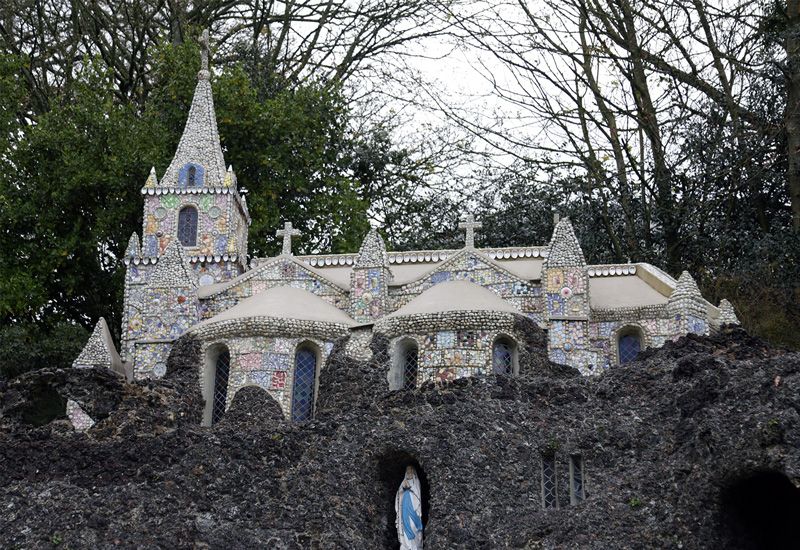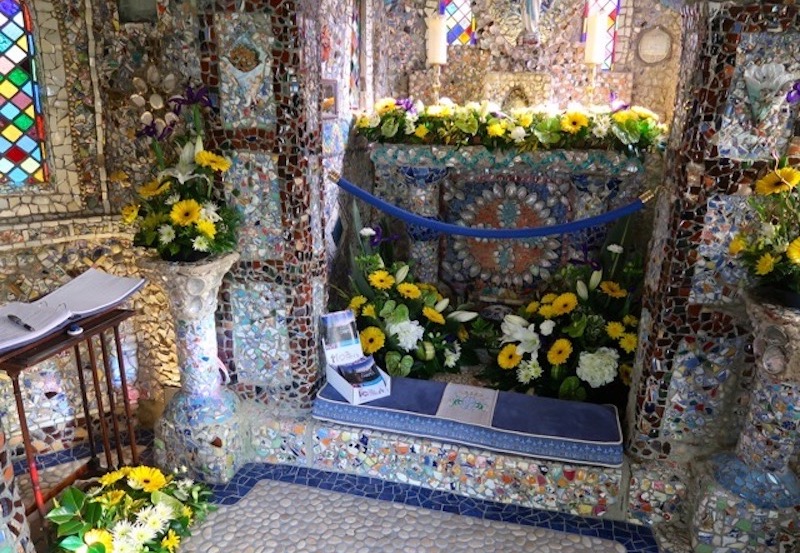


Redeveloping the garden is the next priority for the Little Chapel Foundation, it has said, as a planning application is submitted outlining its plans.
The Foundation Committee said it was delighted to be able to start the next step of its long-term project, which aims to improve accessibility and will see a number of new trees and flowerbeds planted.
Accessibility will be improved through better pathing around the Chapel, according to the plans, with the aim of finishing the work by the time the Little Chapel hits its centenary celebrations in 2021.
"The Committee would like to thank all the Consultants and professional advisors who have assisted them and given of their time so generously to reach this important landmark," Jack Honeybill from the Foundation said.
"In particular, thanks are due to Andrew Merrett of Lovell Ozanne and Partners as well as Andrew Dyke of Cresswell, Cuttle and Dyke and his garden designer, Stephen Welch."
The garden itself was designed by Stephen Welch. If people want to review his plans for the garden around the Chapel, they are available to see at Sir Charles Frossard House, and are also going to be put on display at the St Andrew's Constables' Office. Finally, the plans will also be avalible at the Little Chapel itself over the weekend of the 7 and 8 December.
Members of the Foundation will be there to answer any questions people have, alongside celebrating the Little Chapel's Christmas Decorations.
"The Foundation would also like to encourage members of the public to bring any pieces of china that would be suitable for use in restoring the mosaic," Mr Honeybill added.

Pictured: The Little Chapel will be 100 in 2021.
The Chairman of the Little Chapel Foundation, John Silvester, said the work already done to improve the site has proven successful, so they want to do more to boost the tourist attraction further. However it is acknowledged that the site isn't without its limitations.
"We have enjoyed a very successful summer season with an estimated 60,000 visitors coming to see the Little Chapel. Many of these visitors have travelled to the Island on the various cruise ships. They have come from around the world but have all been of the same opinion. They think that Guernsey is a wonderful place and the Little Chapel is an absolute gem. The comments written in the Visitors’ Book are uplifting to read.
"However, after spending many hours at the Chapel during the summer, members of the Committee have all reported similar observations. The Chapel itself is small and the accessible area around it is also limited. When the visitor coaches arrive, they do so in groups of between four and twelve. This volume, together with the increasing numbers arriving on the Public Service transport, in taxis and private cars, creates a congestion problem. The access road to the Chapel is shared between pedestrians and motor vehicles. This can be very dangerous at busy times and does cause some frustration for the other road users trying to gain access to the commercial premises that share the site.
"There are difficult paths and many, uneven steps to negotiate in order to reach the Chapel itself. Whilst access is not easy for the able-bodied visitor, it is impossible for those in wheelchairs or with restricted mobility. We have all been saddened to witness the frustration of these visitors who have made their way from all around the world only to be excluded by the last few metres. It is acknowledged that the Little Chapel is the Island’s premier tourist attraction and we must address this problem of safe access without delay. Indeed, it is the Island’s strategy to strive for an inclusive society."
So far the work to the Little Chapel has been funded by donations with many individuals and businesses supporting it financially and through their time and skills. Mr Silvester said donations from visitors are also an important source of income.
"Many visitors have been very generous and have made donations that have allowed work on the restoration and refurbishment of the Chapel to continue. The Foundation is very grateful to these individuals as the level of income regulates that amount of work that can be undertaken. Regrettably, there have been visitors coming to the site that have declined to leave a donation. It is possible that they have not realised that donations are our only source of income."
Pictured top: The Little Chapel.
Comments
Comments on this story express the views of the commentator only, not Bailiwick Publishing. We are unable to guarantee the accuracy of any of those comments.